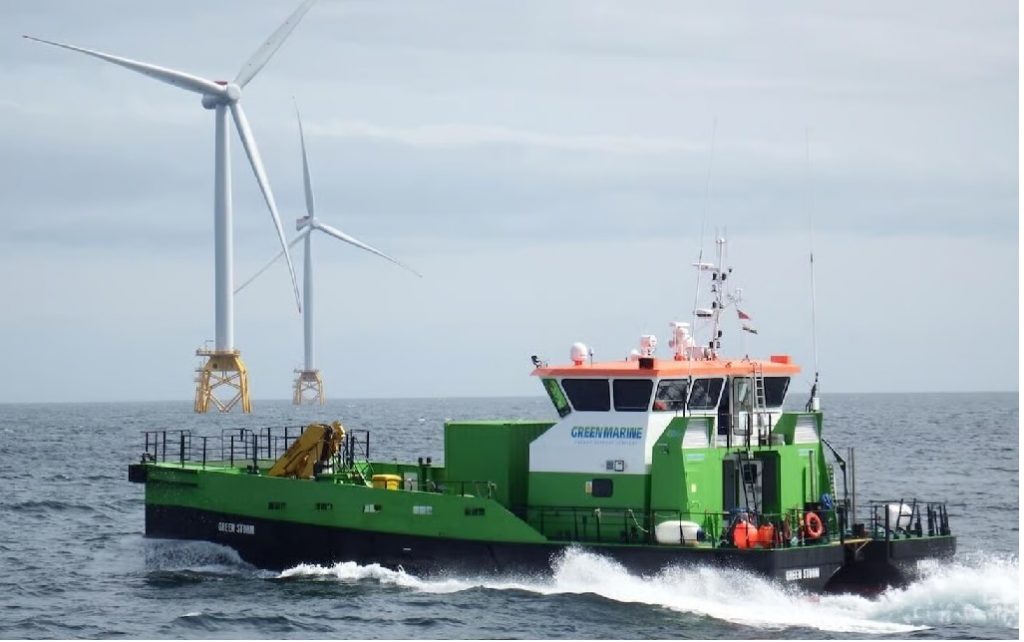Green Marine UK will retrofit crew transfer vessels (CTVs) with hydrogen, fuel cells and a battery to cut emissions when servicing offshore wind farms.
The initiative has been granted Approval in Principle (AiP) by RINA, enabling Green Marine UK to execute basic design, detailed engineering and tests in the field.
Phase one of Project Verdant has been completed and deemed viable, which involved a preliminary design and feasibility study, opening the door for sea trials.
The conceptual design incorporated hydrogen fuel cells connected to electric motors, working in conjunction with existing diesel-fuelled engines. Energys helped design and provide engineering and modelling, whilst Engineered Marine Systems (EMS) supplied a design for the battery room.
H2 View understands that initial findings proved the hybrid system could reduce the vessel’s CO2 emissions by up to 30% and NOx emissions by up to 40%.
Obtaining the AiP was a key objective for Green Marine UK, according to the company’s Managing Director, Jason Schofield. It provided confidence in the CTVs ability to operate safely in UK waters per the Maritime & Coastguard Agency (MCA) regulations.
Green Marine UK will be leading Project Verdant with support from the Innovate UK-funded project including maritime consultancy Waves Group and European Marine Energy Centre (EMEC).
Findings have shown that the shipping industry is responsible for 2.5% of the globe’s CO2 emissions, but the International Maritime Organisation (IMO) aim to cut these emissions by 50% by 2050.
Tags: AiP, Green Marine, Retrofit, RINA



Recent Posts
Port of Brisbane Unveils Vision 2060 to Drive Smarter, Cleaner, and More Connected Future
Wärtsilä to Deliver Hybrid Propulsion Systems for Vertom Group’s New Low-Emission Vessels
Latvian port receives electric Konecranes Gottwald Mobile Harbor Crane
Sustainable Ocean Economy Vital for Human Development, Says UNDP at UN Ocean Conference
Green Hydrogen Costs in India Could Drop by 40%, Says IEEFA-JMK Report
Cavotec Secures €1.55 Million Shore Power Contract for Port of Antwerp-Bruges
APM Terminals and SANY Marine sign landmark agreement to accelerate decarbonisation
The Port of Gothenburg takes big step towards shore power connection for container and car/RoRo vessels